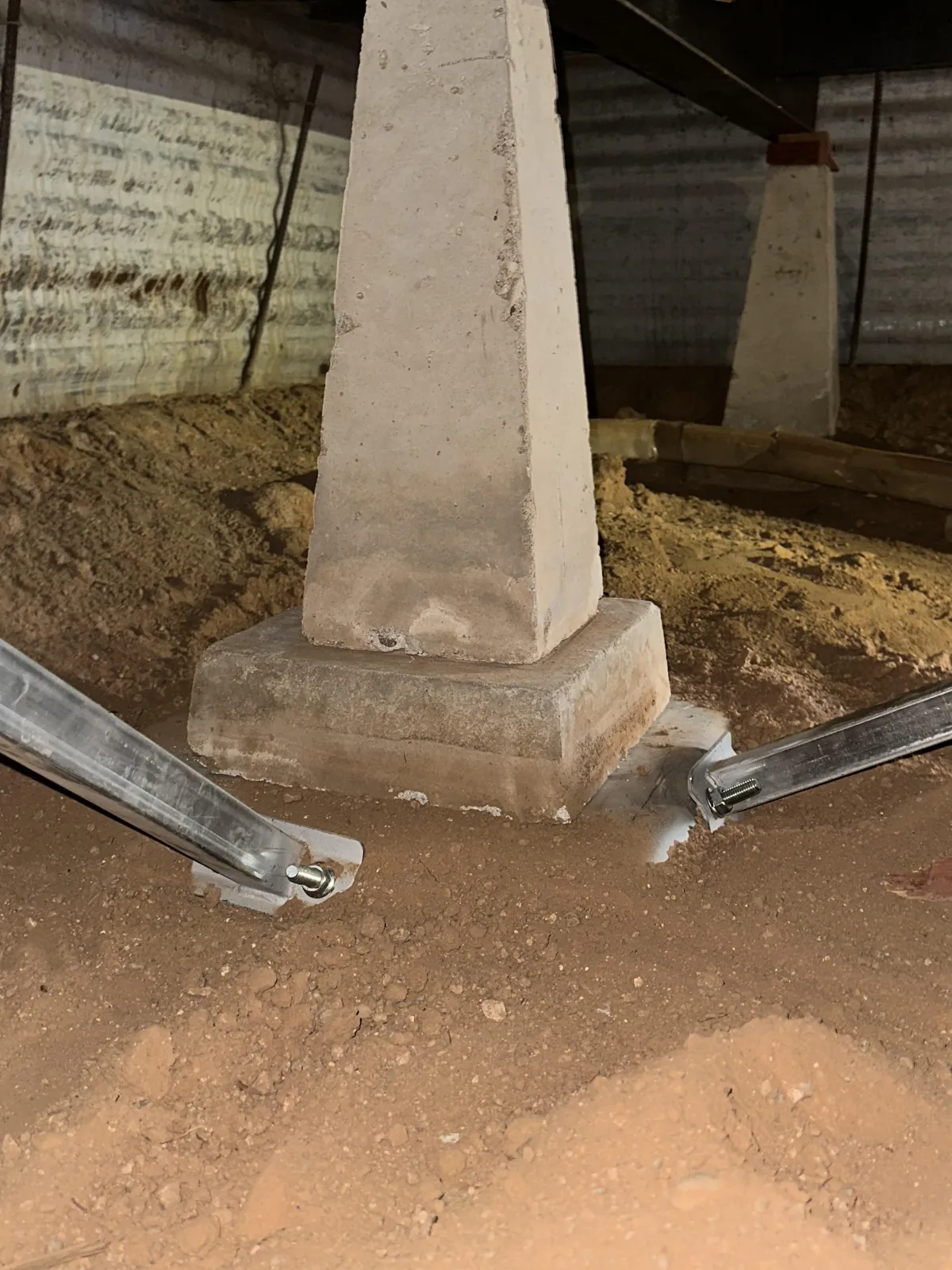Our Blog

Mobile Home Support Piers: The Foundation of Stability and Safety
The foundation of a mobile home is as important as its structure. Without proper support, your home can experience uneven settling, structural damage, and even safety hazards. This is where mobile home support piers come into play. These essential components provide the stability and weight distribution necessary to keep your home level and secure. In this blog, we’ll dive into the importance of support piers, how they work, and why regular inspection and maintenance are vital for mobile home owners.
1. What Are Mobile Home Support Piers?
Mobile home support piers are the load-bearing structures placed beneath your mobile home to support its weight. Typically made from steel, concrete, or adjustable materials, these piers distribute the weight of your home evenly across its foundation, reducing stress on the frame and preventing movement or settling.
There are two main types of support piers commonly used:
Concrete Piers: These are fixed piers often made from concrete blocks, providing solid and durable support for mobile homes. They are ideal for homes that require long-term stability on a permanent foundation.
Adjustable Piers: These steel piers are equipped with adjustable tops that allow precise leveling of the home. They are ideal for mobile homes in areas where the soil may shift over time.
Both types of piers work together with tie downs and anchors to keep your home stable, level, and secure.
2. Why Are Support Piers Essential for Mobile Homes?
Proper support piers are crucial for a variety of reasons:
Weight Distribution: Mobile homes are large structures that require even weight distribution to prevent sagging or stress on specific areas. Piers ensure that the home’s weight is evenly spread across its foundation.
Preventing Settling: Over time, shifting soil or erosion can cause a mobile home to settle unevenly. This can lead to structural issues such as cracks in the walls, misaligned doors and windows, and an unlevel floor. Support piers minimize these risks by providing a stable base.
Stability in Severe Weather: In areas like Arizona, where wind and shifting soil can be issues, support piers enhance the home’s stability by preventing movement or tilting during extreme weather conditions.
Compliance with Local Codes: Many local building codes require mobile homes to have properly installed support piers for safety and stability. Failing to meet these standards can lead to legal issues, delays in selling your home, or complications with home insurance.
3. Signs Your Support Piers Need Attention
While support piers are designed to last for years, they are not immune to wear and tear. Regular inspections are essential to identify issues before they become major problems. Here are some common signs that your support piers may need repair or replacement:
Cracks or shifting in concrete piers
Rust or corrosion on adjustable steel piers
Visible tilting or uneven settling of the home
Squeaky or uneven floors inside the home
Difficulty closing doors or windows
Ignoring these signs can lead to costly structural repairs down the road, so it’s important to address them as soon as they appear.
4. The Importance of Professional Installation and Maintenance
Installing or repairing support piers is not a DIY project. Proper installation requires an understanding of your home’s weight, soil conditions, and local building codes. Professional contractors like AZ Tie Downs have the experience and equipment needed to ensure your support piers are installed correctly and meet all safety standards.
Regular maintenance is equally important. Professionals can inspect the piers for damage, adjust them as needed to maintain proper leveling, and ensure they remain in compliance with regulations. This proactive approach can save you money and give you peace of mind knowing your home is secure.
5. Support Piers and the Sale of Mobile Homes
If you’re planning to sell your mobile home in Arizona, properly installed support piers are often a requirement for the sale. During the inspection process, buyers and their agents will look for signs of settling, damage, or improper installation. Ensuring your support piers are in good condition can help the sale process go smoothly and increase the value of your home.
Mobile home support piers are the unsung heroes of your home’s foundation, providing the stability and security necessary for a safe and comfortable living space. Whether you’re dealing with shifting soil, uneven floors, or preparing your home for sale, properly installed and maintained piers are essential. At AZ Tie Downs, we specialize in professional support pier installation, adjustment, and maintenance to keep your mobile home stable and compliant with Arizona regulations. Contact us today for a consultation and ensure your mobile home is built on a foundation you can trust.
